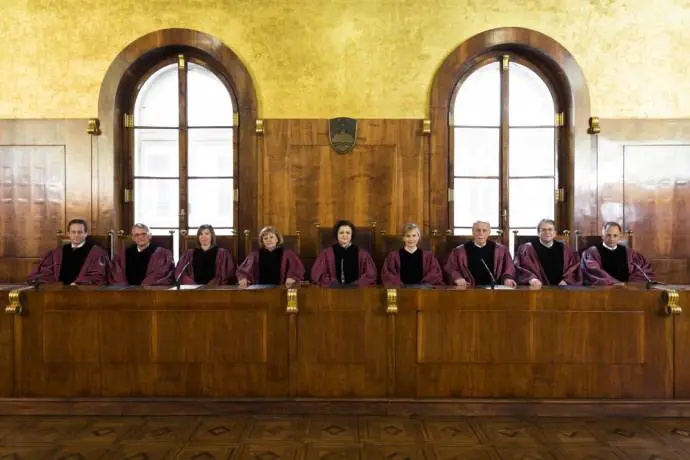In a decision issued on Monday, the court said that Article 57 of the law, which stipulates that asset forfeiture may be conducted for any criminal cases initiated after 1 January 1990, runs afoul of the Constitution.
The majority on the court held that the law defined a new crime - mismatch between a person's income and assets - that had not existed before, and new consequences for such a crime, which is why retroactive effect is not admissible.
As judge Klemen Jaklič pointed out in his concurring opinion, the provision was akin to defining a new crime and then prosecuting a person for committing it at a time when such a crime did not even exist on the books, which constitutes a textbook example of an ex post facto law that is prohibited by the Constitution.
The court examined the case brought by a hairdresser from Ptuj, who had a huge house with a pool and multiple luxury cars despite earning a modest income as a sole proprietor.
Her husband, however, had been a police officer who was found guilty of involvement in drug dealing and served a prison sentence, according to a report by Delo newspaper.
The decision will not have bearing on the specific case, as lower courts had already rejected the prosecution's request for asset forfeiture on other grounds.
But it could affect several other ongoing cases.
One of the biggest such cases is the asset forfeiture against convicted drug lord Dragan Tošić, who is suspected of buying millions in property in Ljubljana with drug money; some of the asset purchases date back to before 2011.
The law may yet be pared down further as it is the subject of several other challenges at the Constitutional Court, including from election winner Janez Janša, who is suspected of having at least EUR 400,000 worth of property that he cannot properly account for.
His challenge refers to the deadline by which the prosecution may initiate asset forfeiture proceedings.
The Justice Ministry responded by saying it still had to study the decision in detail but that it was already clear it would have far-reaching consequences and affect concrete cases that occurred before the 2011.
It also spoke of a systemic decision with long-term effects, of a super-standard that will limit lawmakers in the adoption of similar measures for fighting the most demanding and harmful forms of crime.
Moreover, State Prosecutor General Drago Šketa told Radio Slovenija that the prosecution is being stripped of effective tools and that the scope of financial investigations is being reduced to the period after the act entered into force.
Šketa described the decision as a blow not only to the prosecution but to the country as a whole.






